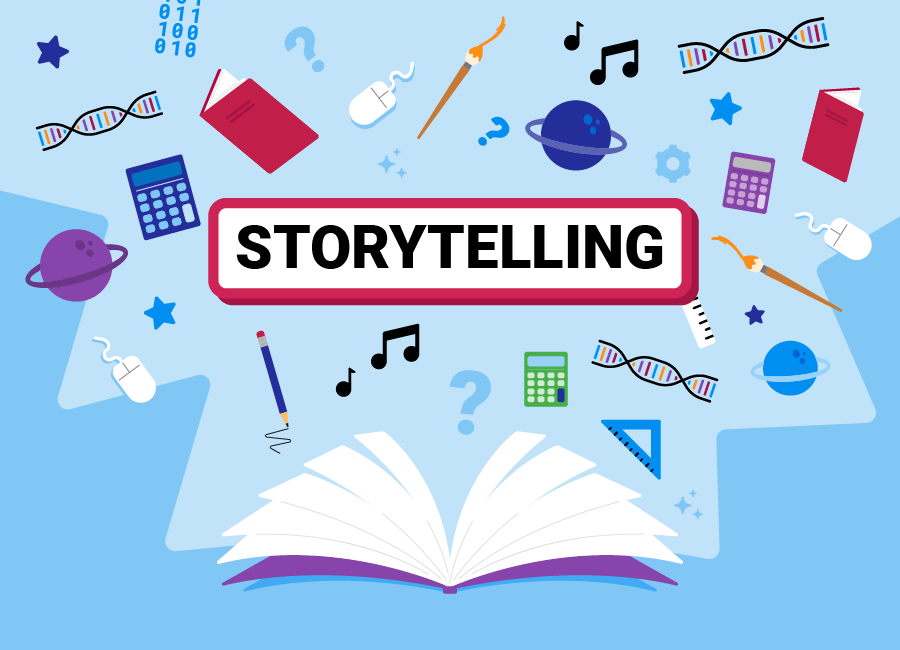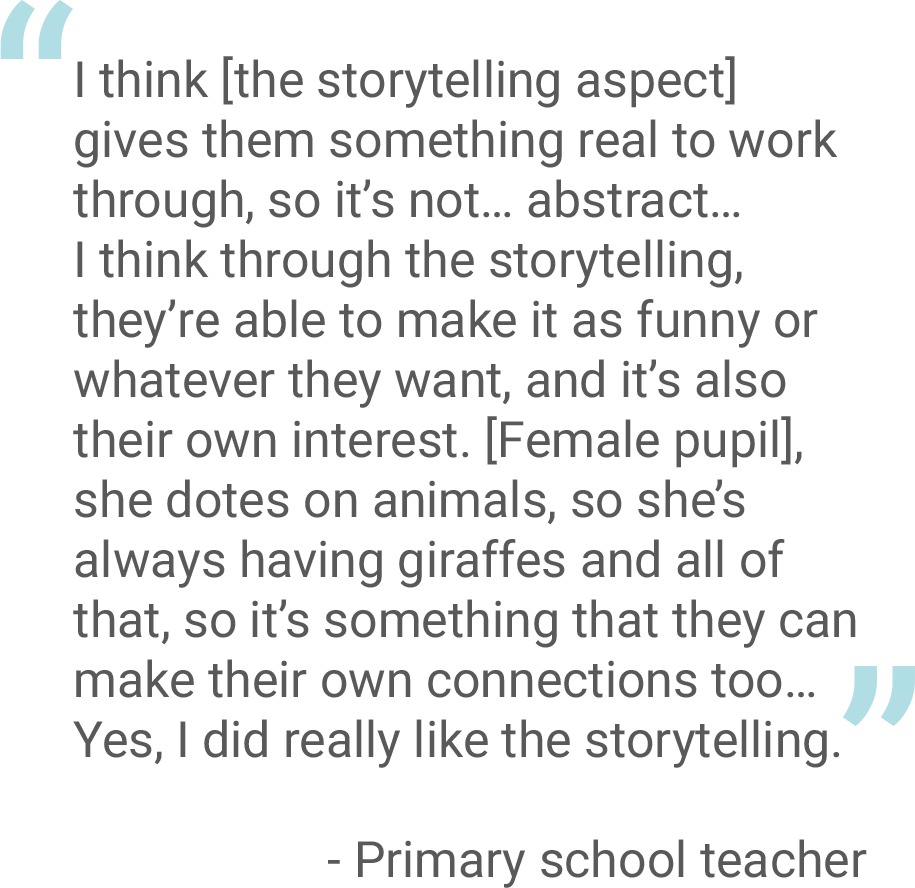
In this small pilot study, we investigated the early engagement of girls in computing, recognising that academic research evidence suggests that gender stereotypes form at a young age. The focus was on exploring the potential of storytelling and story-writing as effective means of introducing computing concepts to Year 2 pupils (aged 6 to 7) in primary schools.
| Date range of intervention | April–July 2021 |
| Age of participating students | 6–7 years old |
| Aim of intervention | To explore the effect of teaching computing through storytelling and story-writing on girls’ attitudes to computing |
| Intervention | 12 lessons and resources that integrated computing concepts like sequencing and repetition with elements of storytelling, such as structure, rhyme, and speech |
| Method | Randomised controlled trial (RCT) – schools were assigned at random to either the ‘treatment’ group, using the intervention resources, or the ‘control’ group, who continued with their usual computing lessons |
| Evaluation | Evaluated using a mixed-methods approach using pupil surveys, case studies and a teacher survey to evaluate whether the study showed evidence of promise to progress to a full trial |

Findings from the trial revealed the intervention to be well-received by pupils and feasible for teachers. It demonstrated evidence of promise, leading the independent evaluators to recommend moving forward with a full trial.
Feedback from teachers suggested areas for improvement, with some proposing that the training could be streamlined, while others stressed the importance of ensuring comprehensive coverage of lesson content for less experienced educators. More experienced teachers advocated for flexibility in skipping certain lessons, tailored to the skills and knowledge of their respective classes.
Based on the trial implementation, we identified areas for enhancement in future trials. The recruitment strategy will be refined to maintain engagement and participation from as many schools as possible. Moreover, to improve the survey process, more extensive testing will be conducted, aiming to ensure pupils can independently complete the surveys while teachers can easily administer them within existing time constraints.
The resources from the intervention are freely available. There are two 6-week units of work for teachers to download and use or adapt. These resources are aimed at learners aged 6 to 7 years old.
Rizvi, S., Sentance, S., Childs, K., Leonard, H., Quinlan, O., & Waite, J. (2022, October). Use of storytelling to increase engagement and motivation in computing in lower primary schools. In Proceedings of the 17th Workshop in Primary and Secondary Computing Education (pp. 1-2). (author copy and poster)
Childs, K. (2021). Factors that impact gender balance in computing. In Understanding computing education (Vol. 1). Proceedings of the Raspberry Pi Foundation Research Seminars.
Leonard, H. C., Quinlan, O., & Sentance, S. (2021, September). Female pupils’ attitudes to computing in early adolescence. In Proceedings of the 2021 Conference on United Kingdom & Ireland Computing Education Research (pp. 1-6). (Open-access author copy, presentation slides, and video presentation)